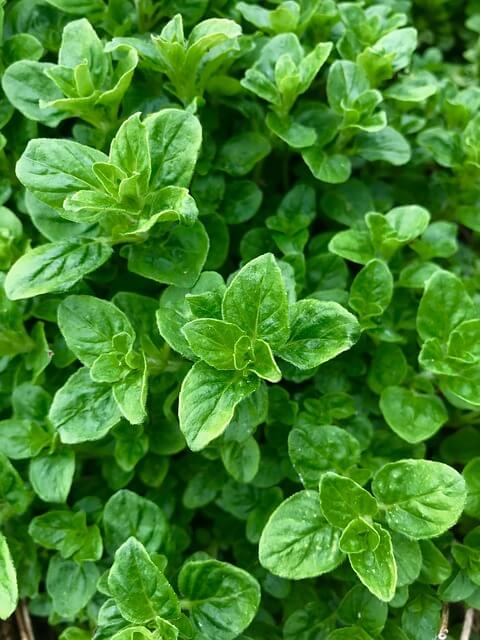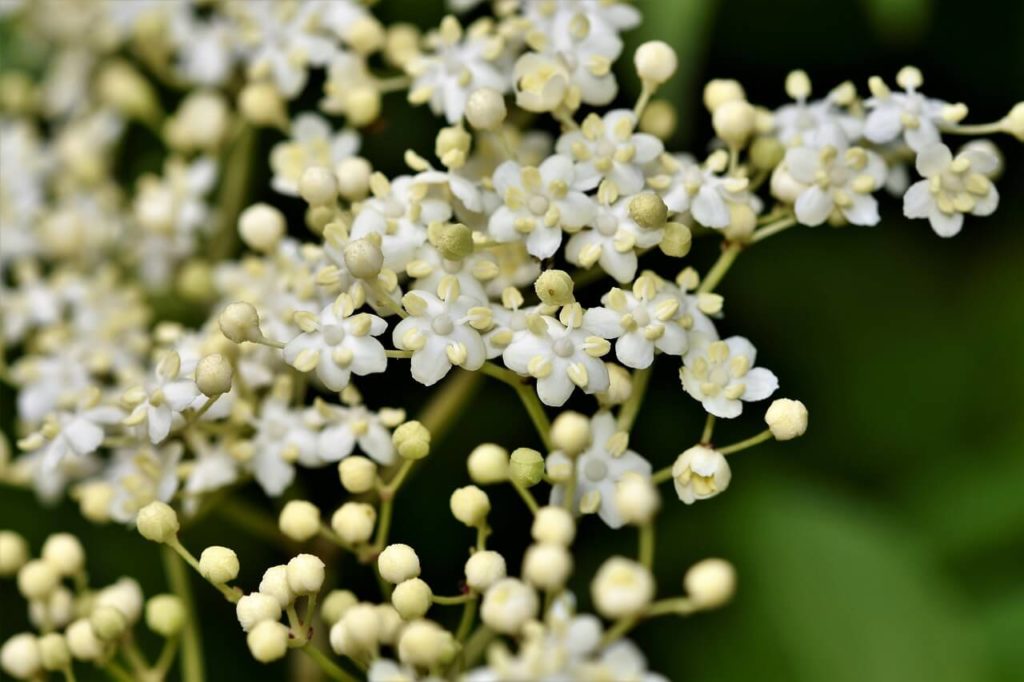Immune Supporting Herbs Guide: There are literally hundreds of different types of infections that create a wide range of illnesses in the human body. From the common cold and influenza (seasonal flu) to more serious chronic illnesses.

Unlike bacterial infections that can mostly be removed from the mindful use of antibiotics, certain infections can not. Therefore you may want to consider harnessing the power of certain herbs that can lessen the duration and intensity of your symptoms. This guide will highlight some of the top contenders to include in your diet and supplement routine, and help you stay healthy year-round.
Top 12 Immune Supporting Herbs
Herbs are plants that contain properties to help ward off and support your immunity. Certain pathogens can only survive inside the cells of another living organism. They look for hosts to proliferate, which causes a wide range of unpleasant symptoms in humans. For centuries specific herbs have been used to ward off infections by strengthening the immune system.
Many of the active properties of immune-supporting herbs are not water-soluble, and so it is advised you seek out a tinctured extract instead of getting the raw plant form.
Herbs and the Immune System
Many ancient herbs and herbal remedies have the ability to support your immune system, meaning that your body has more strength to battle against any type of invader. This is important because these “bad guys” can infect a host in so many different ways that your best defense is indeed a resilient body. Some infections enter through the blood, others are transmitted by couching or sneezing (the flu or cold), while others are caught through oral-fecal transmission due to poor sanitation (like gastroenteritis). Although taking preventative measures to limit your exposure to these inflammatory invaders, ultimately a strong immune system will always be your best defense mechanism.
Top Immune Supporting Herbs and Their Uses
Nature has provided us with a wide range of natural ways to fight infections. This list is not exhaustive, but many of the most potent and accessible immune-supporting herbs. Some of these ingredients can be consumed raw, others are best used boiled into a tea, and others are best consumed in tinctured form. Ultimately tinctured herbs will provide you with a more bioavailable ingredient.
1. Garlic
Garlic is one of the most classic immune-supporting herbs and takes first place on the list because most people already have it sitting in their pantry. Garlic can be used internally or topically but should be kept raw to maintain its medicinal value.
What is Garlic Used For?
- It’s anti-infection properties
- It’s potential to reverse hair loss
- Immune strengthening properties
- Support cardiovascular health
How to Use Garlic as an Immune Supporting Herb
You can essentially consume as much garlic as you can handle. To get the most out of it medicinally, crush the garlic first, to release it’s healing properties (called allicin). You can do this using the back of a knife, or mince it finely before taking it. Consuming it raw ensures the garlic keeps its strong medicinal value. You can also make potent garlic oil by crushing then chopping a handful of garlic cloves, and letting them sit in olive oil overnight. This oil can be used for dressings, drizzles on soups, or any savory dish.
If you cannot bear the taste, garlic can also be purchased encapsulated.
For skin infections, you can create a paste from the raw garlic and apply it directly to the skin, and wrap it in gauze. If the infection doesn’t heal within two weeks, seek medical advice.
2. Oregano

Oregano is a delicious cooking herb that is also a potent healer. For medicinal purposes, wild oregano should be used, as an essential oil extract. This distilled oil is generally found in a tincture made with a base of olive oil. Over 1,000 pounds of wild oregano is used to make one pound of essential oil.
Wild oregano oil has been shown to be successful at warding off infections and parasites, thanks to the powerful compounds inside oregano oil called thymol and carvacrol. Unlike most medications, oregano oil has no side effects. Wild oregano oil is one of the most well studied antiviral herbs available today.
What is Oregano Used For?
- Kill parasites
- It’s anti-infection properties
- Reduces inflammation
- Potent Antioxidant
How to Use Oregano as an Immune Supporting Herb
Oil of wild oregano is very potent. You can take 1-4 drops taken twice daily in water, or it can be applied topically. Generally, this oil is already diluted in olive oil, but if you’re using it in pure essential oil form, ensure to dilute it before applying it topically or taking it internally.
3. Ginger
Ginger is one of the holy ingredients of Ayurvedic medicine. This ancient Indian wisdom loves ginger particularly due to it’s warming properties in the body. This fire helps cleanse the lymphatic system, stimulates digestion, boosts the immune system, and has a positive influence on a wide range of infections.
What is Ginger 3 Used For?
- Warms the system
- Boosts digestion
- Stimulates the immune system
- Reduces pain
- Balances blood sugar
- Relieves nausea
- Reduces inflammation
How to Use Ginger
Ginger can be used in so many different ways, both raw and cooked, for medicinal benefits. You can simmer ginger in hot water to drink as a tea, nibble on a small piece of raw ginger to stimulate digestion before a meal or to calm nausea. Ginger can also be consumed as a dried powder, or simply used in cooking. To harness the medicinal benefits of ginger for many of its uses, have a little (either raw or as a tea) before a meal.
4. Immune Supporting Herbs: Elderberry

Elderberry is the extract that comes from the dark purple berries of the elder tree. This popular cold and flu remedy is often rendered into a sweet-tasting syrup. Its lesser-known benefits include pain relief from a wide range of ailments.
What is Elderberry Used For?
- It’s anti-infection properties
- Supports the immune system
- Reduce cold and flu symptoms
- Relieve pain and fatigue
- Relieve constipation
- Gum inflammation
How to Use Elderberry
Elderberry is often found as a syrup and used for cold and flu symptoms. It is especially good for children since its naturally sweet flavor is much more pleasant than many other antiviral herbs. Used topically, elderberry can be rubbed on the gyms to reduce inflammation. For cold and flu, elderberry can be taken four times daily (15ml) for 3-5 days. For constipation, it can be taken in 15mls diluted in 150ml of boiling water, three times a day for five days.
5. Immune Supporting Herbs: Olive Leaf
Olive leaf extract is a polyphenol-rich supplement that is well known for its ability to balance blood pressure and cholesterol. Although many of the studies have been conducted on animals, pre-clinical human studies are showing lots of promise as well.
Olive leaf is revered in Mediterranean diets but used medicinally olive leaf should be consumed as an extract. This essential oil is often found in a syrup form, often targeted at relief symptoms from the common cold, sore throats, or the flu.
What is Olive Leaf Used For?
- It’s anti-infection properties
- Strengthening the immune system
- Hindering the spread of pre-existing pathogenic organisms
- Cholesterol and blood pressure support
How to Use Olive Leaf
Olive leaf is a gentle herb that can be used without harming the good bacteria in the body. The dosage depends on what goal is trying to be achieved. A standard dose hovers between 500 and 750 mg per day. It can be found in liquid or capsule form.
6. Immune Supporting Herbs: Astragalus Root
Astragalus root is revered in Traditional Chinese Medicine for its anti-infection properties. It has been used for centuries to fight infection and boost the immune system. As an adaptogen, astragalus helps reinstate balance in the body. Topically, astragalus is known to help speed up the recovery of wounds.
What is Astragalus Root Used For?
- It’s anti-infection properties
- Boosts the immune system
- Anti-inflammatory properties
- Adaptogenic qualities
- Lowers stress
- Wound support
How to Use Astragalus
Astragalus root is best used as an extract, either in tinctured or dual-extracted powder form. A properly extracted powder can then be used to make tea or used topically by making a paste and covering the wound with gauze. Tinctures can be taken 1-4 drops twice a day in a glass of water. Astragalus root can be taken preventatively during cold and flu season to boost the immune system.
7. Goldenseal
Although it can be slightly more expensive, goldenseal is a top contender for antiviral herbs. This herb contains an active ingredient called berberine that is a powerful anti-infection and parasitic agent.
What is Goldenseal Used For?
- Anti-infection properties
- Digestion support
- Strengthen the immune system
- Potent Antioxidant
How to Use Goldenseal
Goldenseal can be taken in capsule or tincture form but should be used mindfully. The berberine found in goldenseal kills bad bacteria but can also kill the good bacteria, so it should not be used for more than a week or two at a time. Used cyclically, goldenseal can offer powerful antiviral results. The dosage will vary wildly based on age, condition, health status, and other factors; follow the guidance of a functional medicine practitioner. Avoid completely if pregnant.
8. Cat’s Claw
Despite its name, cat’s claw does not actually come from cats. This powerful anti-infection herb has been used by South Americans for centuries to treat a wide range of health problems. Today it can be found in tincture or raw form. In its natural state, cat’s claw resembled fine wood chips and has a surprisingly pleasant taste.
What is Cat’ Claw Used For?
- Anti-infection properties
- Reduce Inflammation
- Digestive tract support
- Stomach soothing support
How to Use Cat’s Claw
This herb is best consumed as a tea. You can boil a teaspoon of cat’s claw in 16 oz of water for about 5-10 minutes, let it cool, and then drink like you would any tea. Applied topically, opt for a cat’s claw tincture, that you can then use directly on the skin (or combined with a cream or oil).
9. Calendula

Calendula comes from a flowering plant also known as marigold that has been used medicinally for hundreds of years. The high flavonoid content of calendula provides the body with antioxidants that fight free radicals in the body. You will often see calendula listed in natural topical creams and ointments due to its powerful skin and wound healing properties.
What is Calendula Used For?
- Reducing inflammation
- Support wound healing like cuts and burns
- Reduces damage caused by free radicals
- Anti-infection properties
How to Use this Calendula
There are various uses for calendula, all of which are best executed by following the directions on the product itself. Calendula can be used for ear infections, and dosage will depend on the strength of the products. Used topically, calendula can be applied (properly diluted) multiple times per day. This gentle herb does not boast any known side effects.
10. Echinacea
Echinacea is a well-known all-star for cold and flu season, and for a good reason. This flower has a wide range of benefits that fight off the bad whilst helping support the good. This immune-boosting herb is often found as a tincture or in syrup form and can be taken preventatively or reactively for anything from signs of cold and flu symptoms, to pain relief, and used topically to soothe the skin.
What is Echinacea Used For?
- Boots the immune system
- Supporting healthy cells
- Pain relief
- Reduces inflammation
- Soothes the skin
- Balance blood sugar
- Helps manage anxiety
How to Use Echinacea
Echinacea can be used to make tea, as a tinctured extract, or used topically to heal skin irritation or wounds. Liquid tincture extracts can be taken up to 10ml per day, spread out in two to three doses.
11. St. John’s Wort
St. John’s Wort is one of the immune-supporting herbs known for its powerful effects to combat the feelings of depression. Unlike many pharmaceuticals, St. John’s Wort has no negative side effects, but it should be taken in conjuncture with the support and guidance of a functional medicine practitioner.
What is St. John’s Wort Used For?
- Sleep Support
- Appetite Support
- Boosts the immune system
- Mood support
How to Use this St. John’s Wort
St. John’s Wort can be a powerful natural mood booster when used properly and in conjuncture with a healthy lifestyle. It can be taken as a liquid tincture or in capsules. A standard dose is approximately 300mg taken three times per day. Avoid using St. John’s Wort if you are currently taking an MAO or protease inhibitor.
12. Licorice Root
Licorice root has been used in Chinese medicine for hundreds of years for its immune-strengthening properties. The triterpenoids in licorice root give it this medicinal quality. Since the root in raw form isn’t very bioavailable, it is best to consume licorice root as a tincture (generally extracted in alcohol).
What is Licorice Root Used For?
- Support reproductive health
- Boosts the immune system
- Relieves sore throat and cough
- Adrenal Support
- Pain relief
- Gastrointestinal support
- Reduces damage caused by free radicals
How to Use this Licorice Root
Depending on the reason for using licorice root, the dosage will vary. Follow the instructions on the bottle, and opt to use licorice root at the first sign of a sore throat. Using licorice root to support reproductive health should be done in conjuncture with a protocol tailored for you by a functional medicine practitioner.
Immune Supporting Herbs: Summary
Infections from various pathogens can be caught in various different ways. Although proper hygiene and mindful living can reduce exposures to these foreign invaders, it is essentially impossible to avoid them altogether. The best defense is a strong immune system, which can be supported by the use of certain researched herbs.
Immune supporting herbs can help fight the signs and symptoms of many common infections. Harnessing the power of these herbs enables the body to be resilient without the host of side effects that can be caused by many medical interventions. Since the properties of these herbs generally aren’t water-soluble, opt for tinctures to get the most benefits for your health.


